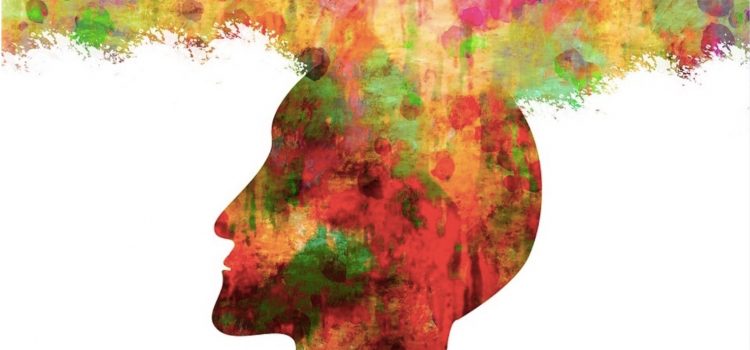

This article is an excerpt from the Shortform book guide to "Waking Up" by Sam Harris. Shortform has the world's best summaries and analyses of books you should be reading.
Like this article? Sign up for a free trial here.
What’s consciousness? What do we understand about it? What implications does it have for spirituality and our sense of self?
According to Sam Harris, consciousness is worth studying despite its elusiveness. Harris, who has a Ph.D. in neuroscience, explores what neuroscience and psychology have to say about the nature of consciousness and the mind in his book Waking Up.
Keep reading to understand what Harris believes consciousness tells us about ourselves and the world around us.
Sam Harris on Consciousness
According to Sam Harris, consciousness is still a mystery to modern science. Scientists are currently at a loss to even define what consciousness is, much less to study it directly. What we can do is examine scientific conjectures about consciousness, what current research can tell us about the complicated nature of cognition, and how studies of certain neurological processes offer tantalizing clues about how your sense of personal identity emerges in the brain.
Biologically, what we can say for certain about consciousness is that it’s a product of the brain, though no medical test or imaging of the brain can point to a specific neurological process that generates consciousness. Rather, consciousness appears to be an emergent property of the nervous system—one that’s dependent on how the brain functions while independent of any single part of the brain. Because consciousness is a purely subjective experience, Harris doubts that scientific research will ever be able to explain what it is from a neurological perspective, though he admits that science and medicine have answered other supposedly “unsolvable” riddles, such as how the matter that makes up our bodies can heal and reproduce itself.
(Shortform note: Harris’s conception of consciousness being an emergent property of the brain addresses the philosophical problem of dualism—the question of how the mind can be seemingly autonomous yet dependent on bodily function. However, not everyone agrees with Harris that consciousness can’t be scientifically observed, though scientists currently grappling with the problem admit that research has to be reframed to admit “first person” subjective data as being equally valid as objective data obtained by an impartial, outside observer.)
The things research can explore, says Harris, are the different mental processes that we think of as being pieces of our consciousness, such as language, behavior, and sensory perception, though as individuals we’re completely unconscious of how these neurological processes function. Neural imaging shows that language processing and fine motor skills are controlled by the brain’s left hemisphere, while spatial mapping and emotional processing occur in the right side of the brain. None of these processes define consciousness, though. People who suffer brain injuries may lose one or more of these aspects of consciousness without losing the power of consciousness itself.
(Shortform note: It’s a common scientific generalization that certain mental functions chiefly take place in one or the other hemisphere of the brain, supported by authors such as Jill Bolte Taylor in Whole Brain Living, Jordan Peterson in Maps of Meaning, and Daniel J. Siegel and Tina Payne Bryson in The Whole-Brain Child. However, further studies have revealed that mental processing is far more complex, with many skills such as creativity and mathematics requiring input from both sides of the brain.)
One phenomenon that sheds an interesting light on the nature of consciousness is the experience of people who’ve undergone surgery to sever the hemispheres of the brain as a treatment for epilepsy. Once divided, each hemisphere demonstrates different skills, personalities, and even desires, behaving as two separate minds in one body. Harris argues that this division of consciousness shows experimentally that the mind is a property of the physical brain and not a phantasmal “soul” living inside it. After all, to believe in a soul implies that your mind is independent of your body—but how could a mind housed in a soul be divided in two by a medical procedure?
(Shortform note: Harris’s argument is based on two assumptions: that minds and souls are the same thing and that souls, if they exist, are indivisible. In The Seat of the Soul, Gary Zukav presents an alternate view—that your soul is an expression of a universal consciousness not limited to yourself and that the spiritual essence of which souls are made can be broken down into smaller components, such as individual beings. Following Zukav’s reasoning, a person’s soul could be divided in the case of people who undergo split-brain surgery, resulting in two separate expressions of the universal consciousness.)
The Theory of Mind
In addition to your conscious awareness of your thoughts and feelings, another function of the brain is to interpret the thoughts and feelings of others. Psychologists call this the “theory of mind”—the understanding that other people have a point of view that’s different from your own. On the neurological level, this function of the brain is rooted in mirror neurons, the nerve cells that fire in response to other people’s behavior. In addition to modeling the actions of others, mirror neurons extrapolate the intent behind what other people do. Scientists believe that this process of the brain identifies other people as separate beings and is inextricably linked to your sense of individuality and selfhood.
(Shortform note: How mirror neurons reflect and interpret other people’s states of being plays a vital role in cognitive development. In The Whole-Brain Child, Siegel and Bryson explain that mirror neurons integrate a child’s developing sense of self with the family and community of which they’re a part, perhaps providing the neurological basis for empathy and compassion. While some research has called into question how important mirror neurons are to human empathy, the link that Siegel and Bryson make between a child’s sense of identity and how well they integrate with their larger community offers support for Harris’s next point.)
Harris suggests that there’s an even more basic link between the theory of mind and your feeling of selfhood, which is your understanding that other people are aware of you. The feelings of personal identity we cling to are defined in opposition to the identities of others, whom we recognize as beings separate from ourselves as modeled by our mirror neurons. When other people aren’t there to observe us, we still maintain an inner dialogue as if our identity requires an audience to exist.
(Shortform note: If anything, Harris understates the importance of having other people around to maintain your mental equilibrium, as evidenced by the dramatic example of prisoners sentenced to solitary confinement. A large body of scientific research shows that regardless of the length of time spent in confinement, isolation causes psychological damage that can manifest as depression, anxiety, psychosis, and hallucinations. Even social and emotional isolation can have similar damaging effects, including mood swings, confusion, and poor physical health.)
Harris argues that your feelings of identity and selfhood are an illusion created by a multitude of interlinked mental processes and that transcending the illusion of the self through deep contemplation is the core of spirituality as he defines it.

———End of Preview———
Like what you just read? Read the rest of the world's best book summary and analysis of Sam Harris's "Waking Up" at Shortform.
Here's what you'll find in our full Waking Up summary:
- Why those who reject religion are missing out on something crucial
- A reason-based approach to spirituality that’s rooted in science and meditation
- What science and theology have to say about the soul and the mind






